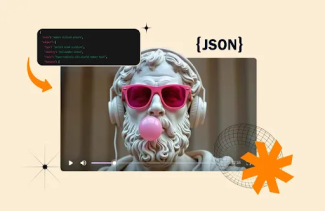
Cloud computing has seen a rapid boost among entrepreneurs, small and big businesses for the last few years. The service basically provides users with a platform for computing, storage, power, and databases. Currently, IT-based businesses are using this technology to be less reliant on physical hardware. Moreover, compared to hardware databases, Cloud computing is much faster in terms of processing and executing results.
Now, with many cloud computing services available in the market- it could be quite difficult to know which one suits your business needs. To resolve the same issue, we are discussing different types of cloud computing along with their elements. This blog can be helpful for you in having some amazing tips for hosting mobile apps, web apps, and more.
Different forms of Cloud Computing
Cloud computing is used for tasks such as saving reports, processing transactions, and delivering gaming services. Currently, top app development companies such as Ubisoft, Rockstar, Amazon, and many others are using different types of Cloud Services to make their services more approachable. It is also helping them in expanding their market coverage across the globe.

Different types of cloud computing models - Public Cloud Deployment Model
- Private Cloud Deployment Model
- Hybrid Cloud Deployment Model
- Community Cloud Deployment Model
- Multi-Cloud Deployment Model
Public Cloud Deployment Model- This one of the popular forms of Cloud Computing refers to a cloud computing network used by many organizations. The service provider owns the network and provides access to the various users. Compared to other forms of Cloud computing, Public Cloud can be easily considered the cheapest form. A few top examples are- Amazon AWS, Microsoft, and Google among other top-notch services.
Pros of the Public Cloud Deployment Model - Expandable on-demand capacity
- Cost-effective
- Scalable
- Useful for multi-purposes
- Data recovery assistance
- Customer service
Cons of the Public Cloud Deployment Model - Controlled by the service provider
- Exposed to security attacks
- Transferring between service providers could be a headache
- Controlled by the service provider
- Exposed to security attacks
- Transferring between service providers could be a headache
Private Cloud Deployment Model- As the name suggests, the Private Cloud model is one of the different types of Cloud Computing that gives owners full control. The user has the freedom to modify any applications of the data from anywhere. However, only the owner of the service can provide access to other users- that too for tasks such as maintenance, storage, and security analysis among others.
Pros of the Private Cloud Deployment Model
- Tight security protocols
- Full control
Cons of the Private Cloud Deployment Model - Expenditure of private hardware
- Less versatility
Hybrid Cloud Deployment Model- The concept of this one of the different Cloud Services is simple. It lets users use Public and Private Cloud Deployment Models altogether. For instance- a business can have a specific configuration of the hardware to support a Private Cloud server. However, when the server is used at its maximum capacity, a public cloud can be used to expand the space.
Pros of the Hybrid Cloud Deployment Model - Scalability
- Security and control
- Better encryption protocols
- Better transferability
Cons of the Hybrid Cloud Deployment Model - Costly
- Costly
Community Cloud Deployment Model- As the name suggests, this cloud deployment model can be accessed by multiple organizations in a community. The common factors between organizations using one community model can be their need for security compliances, the number of features, user networks, and more. However, even though the cloud model is shared, it is still managed privately by the owner of the cloud model, and all organizations are added as authorized users.
Pros of the Community Cloud Deployment Model
- Saves money
- Faster to access
- Enhanced security protocols
- Easy collaborations
Cons of the Community Cloud Deployment Model - Fixed data storage size
- Shared bandwidth might cause performance issues
Multi-Cloud Deployment Model- As the name suggests, this deployment model includes combining multiple private and public cloud models to meet the organization’s needs. It is usually done to provide larger data storage, better performance, and more such advantages.
Pros of the Multi-Cloud Deployment Model
- Better service availability
- Improved user experience
- Freedom to use the best features
Cons of the Multi-Cloud Deployment Model - Experts with the knowledge of different cloud models are tough to find
- The cost estimation process becomes complex
Different Cloud Services and their features
Cloud services are currently divided into three main segments. Different types of Cloud Computing services have their own USPs in terms of control, security, management, and flexibility.

-
Infrastructure as a service (IaaS)
One of the most common types of Cloud Services used, IaaS is a flexible cloud computing service. The internet-based storage space is used to store, manage, and deliver data. The service is also less expensive compared to its alternatives. Users can add, remove, or make changes to the data saved on their servers. The cloud service is mainly used for big data analytics, e-mail services, online storage, and more. For instance- Amazon AWS, Microsoft Azure, GCE, and Cisco Meta cloud.
-
Platform as a service (PaaS)
Commonly used by app developers, PaaS gives users the freedom to build their preferred suits with the help of tools available already. It comes with the infrastructure to build and deploy software along with elements such as operating systems, middleware, and development tools among others. The PaaS service can be quite expensive.
-
Software as a service (SaaS)
SaaS is a simple concept to understand and undoubtedly, the most popular one. The service includes applications and software that are fully developed and ready to be sold. The platform helps businesses by delivering their IT needs. Because of that, the requirements of internal IT teams are reduced.
-
Function as a service (FaaS)
The newest innovation joining as one of the latest cloud computing trends, FaaS is designed to provide you the independence of focusing on individual functions. In other words, to build and run any function for an application, you won’t have to get involved in the complexities of building and managing an entire cloud infrastructure for each function. Instead, by following the “on-demand” pattern, service providers of this one of the top emerging trends for mobile app development will allocate their resources as needed according to functions that you integrate into applications. IBM says FaaS is the best cloud service type to offer amazing computing performance. Infrastructures such as Chatbots, Web apps, and more can be designed with FaaS with amazing qualities.
Conclusion- Which of the types of Cloud Services are best for you?
Well, it depends on the size of IT-based activities that your business is causing. Mainly cloud computing is used to cut the IT cost but it can be effective in terms of security as well. For instance- A private Cloud Network is the best-suited option for finance-based businesses to provide customers with a better security protocol. On the other hand, the public cloud deployment model can save money for startups efficiently. Connect with the top cloud consulting companies to learn how cloud services can help your business.





